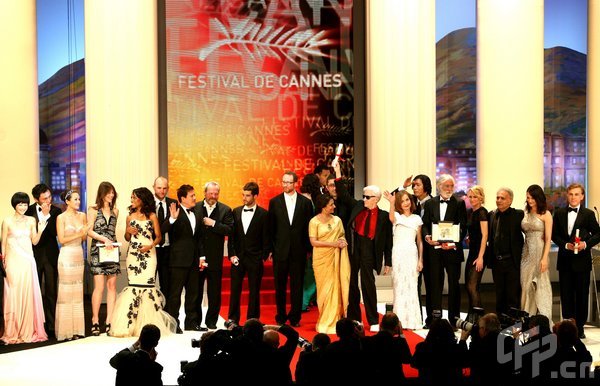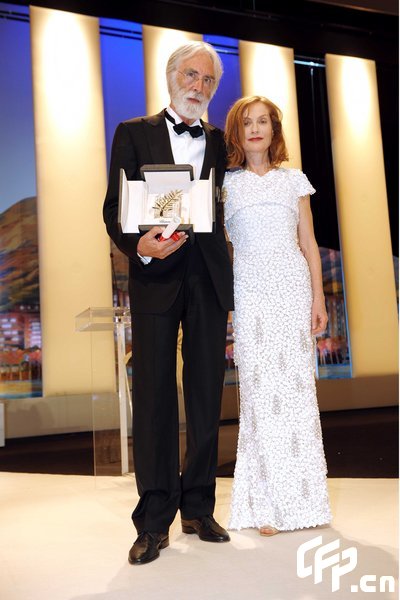|

|
|
Austrian director Michael Haneke poses next to the president of the jury French actress Isabelle Huppert after being awarded with the Palme d'Or for his movie "Das Weisse Band" (The White Ribbon) during the Closing Ceremony of the 62nd Cannes Film Festival on May 24, 2009 in Cannes, southern France.
|
Austrian director Michael Haneke won the Palme d'Or at the Cannes film festival Sunday for "The White Ribbon," a chilling exploration of the roots of Nazi terror.
Haneke's first Palme d'Or (Golden Palm), the top prize at the world's biggest film festival, was one of the favorites among the thousands of critics and journalists in the French Riviera resort for the 12-day movie marathon.
In the black-and-white film, a sinister series of crimes rocks a village in northern Germany on the eve of World War One, and appears linked to a group of children brutalized and scarred by their parents.
Another popular film, "A Prophet," a powerful prison drama by France's Jacques Audiard, received the runner up prize.
Isabelle Huppert, who headed this year's jury and picked up the Cannes best actress award for her role in Haneke's 2001 entry "The Piano Teacher," embraced the 67-year-old at the closing ceremony.
|

|
|
Director Michael Haneke winner of the Palm D'Or for "The White Ribbon" and French jury president Isabelle Huppert during the closing ceremony at the 62nd International Film Festival in Cannes, France on May 24, 2009.
|
"He keeps the perfect distance from his subject matter," she said. "He says very important things but as he used to say all the time, he doesn't deliver messages, he just shows things in a very subtle way."
Haneke said "The White Ribbon" should not be interpreted as just being about Nazi Germany, but about any form of fanaticism.
"If you are making a German film then this age is an interesting one," he told Reuters in an interview in Cannes.
"If the children are 10-15 years old in 1913-1914, then they are just the right age during the Nazi regime, and that was obviously the reason to do it in this time.
"But ... you can apply it to any form of fanaticism, whether Islamic or left-wing fascism. It comes in all forms."
He also said film had a place in modern society where television tended to provide instant answers.
"If film wants to be an art form then its duty is to treat the viewers more seriously."